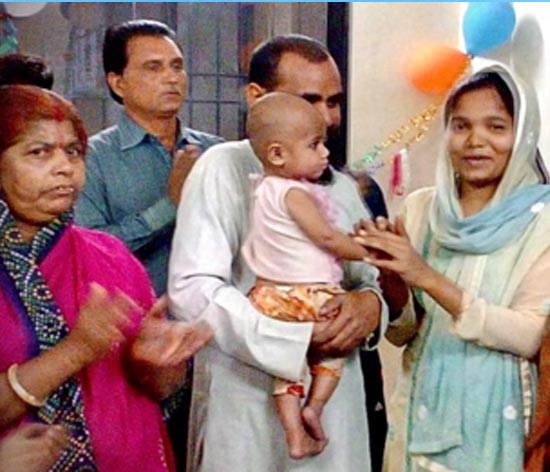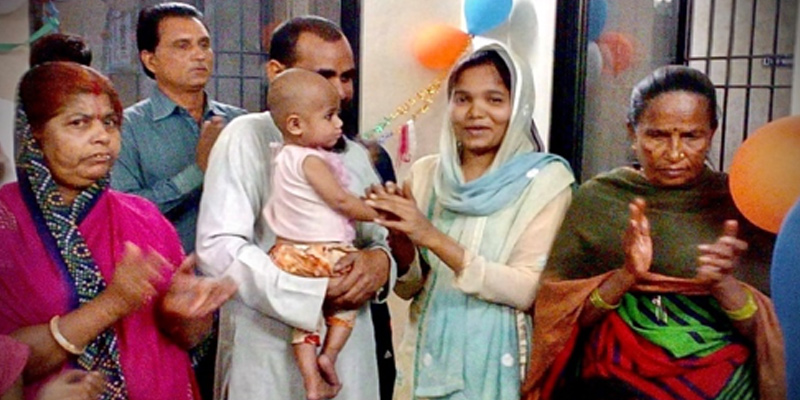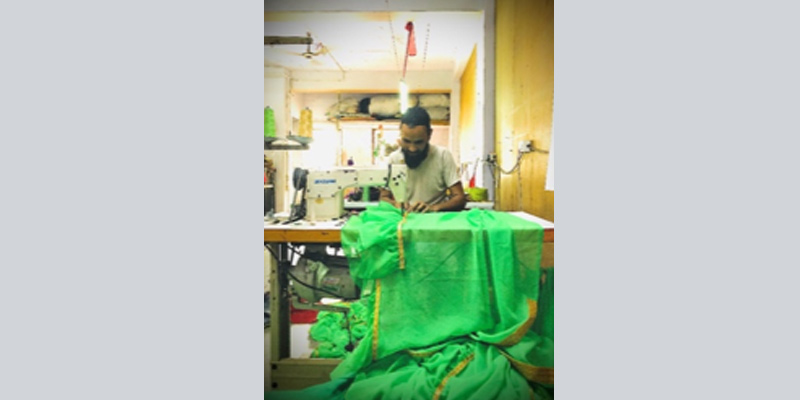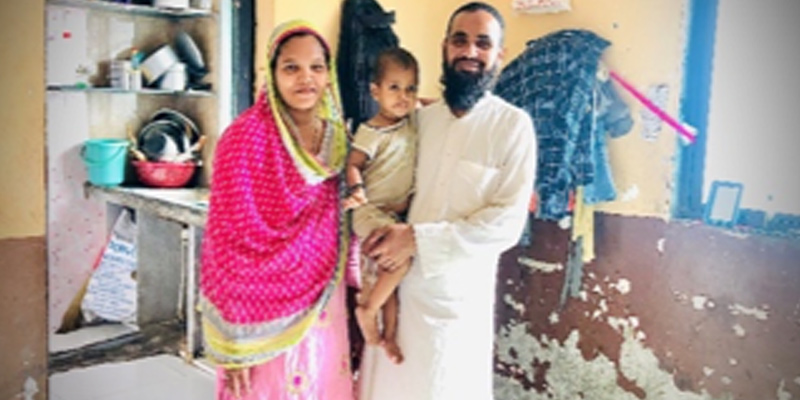
A quest for better livelihood is what drives many migrants to the cities. Jamaluddin Rafi Ahmed Ansari was no different. Along with his wife and an infant daughter, Ansari travelled from Rampur, Uttar Pradesh, to Surat, Gujarat, in search of a better life. Unfortunately, the cost of living in cities is high, especially renting a house. Failing to find a suitable job, no affordable housing to be had and with no cash reserves to fall back upon, Jamaluddin found himself in a far worse situation than he had left behind. Finding a suitable job was a full-time job in itself. He had no other option but to leave his family at the railway station while he was away.
The future looked bleak. But a ray of hope arrived with the shelter provided by Surat Municipal Corporation, under the Shelter for Urban Homeless (SUH) scheme of DAY-NULM, to support them with a roof over their head, basic services and help them find meaningful and sustainable livelihood opportunities. Jamaluddin and his family were taken in by the SMIMER model shelter, which provided them with a safe, secure home for 11 months. The shelter also provided for the family’s basic needs, including two meals a day, proper sanitary and washing facilities with adequate water supply, access to a hospital nearby in case of medical emergencies, etc.
The shelter offers a home to homeless individuals – including senior citizens and differently-abled inmates, and families from different religious and cultural backgrounds, who live together and help each other. The shelter also conducts periodic skill development sessions in order to connect the inmates to meaningful livelihood opportunities, government benefits and social security schemes in a bid to help them become independent.
The Tata Trusts’ Urban Habitat portfolio is facilitating the implementation of the SUH scheme of DAY-NULM, MoHUA, with Surat Municipal Corporation, by extending technical support. The Trusts have extensively worked on operationalising pilot DAY-NULM shelters through creating SoPs, setting up and handholding shelter management committees and facilitating linkages to social security schemes and entitlements. The Trusts also helped to create an autonomous city-level shelter management committee for Surat Municipal Corporation for effective management and monitoring of the activities of the shelters.
“Fostering the homeless in the permanent shelter is not an end to homelessness,” feels Gayatriben Jariwala, the Deputy Commissioner of Surat Municipal Corporation. “What will help end homelessness is the awakening of the desire to live a self-sufficient, dignified life.” Jamaluddin, who toiled for months, was soon able to find a job as a tailor. Once he had saved enough money, he was able to move his family into a small rented residence. “The shelter played a crucial role in supporting me and helping me achieve a life of dignity,” he says gratefully.
Alignment with United Nations SDGs
|



